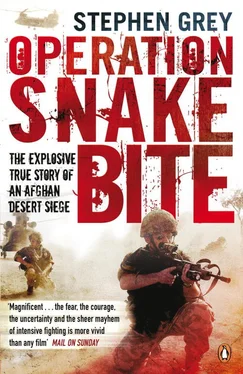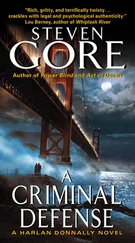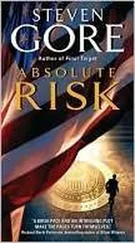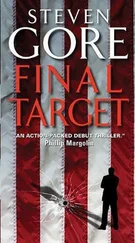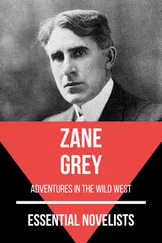Few western officials in Kabul would have offered much of a different view. While celebrating the laying of foundations for a mosque in Musa Qala, one diplomat casually mentioned that the mosque had actually been paid for by the British taxpayer twice before, but the money had disappeared.
Diplomats spoke to me about a realpolitik that defined British and American policy. Afghanistan was not for the squeamish. One intelligence officer characterized the policy of the British ambassador, Cowper-Coles, as a kind of ‘reverse ethical foreign policy’, based on the necessity of striking deals with bad people. ‘I think he has come to realize that no one comes to any position of power in this country without having done something really awful. And yet you have to work with these people.’
The Afghan government’s heroin-addicted policemen might stifle commerce with their illegal checkpoints to raise bribes. Its local officials might be in league with drug barons. But these people were still preferable to the Taliban. Better to educate and reform them than walk away in defeat.
None of this reflected cynicism. Oddly, most of these people believed in prosecuting this war. But it was a journey to the dark side, a vision of the real thoughts that apparently lay behind the public face of this war.
In Pakistan, the former EU official Michael Semple, now exiled from Afghanistan, affirmed his view that soldiers’ lives were being put on the line to defend the opium interests of local political chiefs. For Semple, the whole Musa Qala operation had been not so much about restoring the power of the Afghan government in the valley, but about wresting back control of the opium trade into the hands of its restored police chief, Commander Koka.
Faced with a deeply negative view of the Afghan government and its officials, how should soldiers and their families judge a war the basic premise of which seemed to be a fight on behalf of that government?
As I interviewed soldiers who had fought and were fighting in Helmand, I found many who asked such searching questions. When briefed on the reality of government corruption, there were more than a few who found themselves wondering, if they had been a young man brought up in a valley in Helmand and confronted by foreign troops like the British, on which side would they now be fighting?
On a sweltering afternoon when I was at FOB Inkerman, a group of young corporals and medics from the Royal Marines sat around a makeshift table and started debating the war in Afghanistan. Expecting a round of incoming rockets from the Taliban before the sun went down, and having only recently lost a beloved comrade, the marines had more than an intellectual reason to ask why they had been sent to Helmand.
‘It’s all about oil. There must be oil here somewhere,’ said one corporal. Another thought there was some deal, a secret one, with the Americans, perhaps the CIA. There was a rush for a pile of reference books to get the history straight.
In paying tribute to the dead and injured, politicians and generals have given many reasons for the war, talking of how poor Afghanistan was, of all the children now in schools in Afghanistan, or the numbers of health clinics built, or the threat of heroin arriving on Britain’s shores, of the evils of the Taliban, or all the Al Qaeda terrorists that were being kept at bay.
On the ground that day, few were convinced the war was really about terrorism. ‘If we wanted to destroy Al Qaeda, we would have to invade Pakistan. That’s pretty obvious,’ said one marine, reflecting a widespread consensus. Others thought it equally obvious that fighting a war amongst the Muslims in Afghanistan was as likely to stir up terrorist attacks on UK soil as it was to prevent them.
The war’s defenders clutched at so many explanations to justify the conflict that they began to appear cynical and transparently half-hearted. I thought of a shocking statement I had read of a French colonel back in the 1950s during his country’s Indochina war. Puffing on a Gauloise over lunch in Hanoi, he declared of his soldiers, ‘If they knew they were dying uselessly here, it would be like shooting them in the belly and kicking them in the behind at the same time. And when my aide eventually fries in his tank, I want him to believe that he’s frying for the good of the country. That’s the least thing I can do for him.’ [23] Bernard Fall, Street without Joy (Barnsley: Pen and Sword Books, 2005; first published 1961).
Nothing I heard in Afghanistan was that cynical. But you did get the sense of people clutching at straws to justify a war that many in high command and across government would say in private was a ghastly mistake.
According to Lieutenant General Nick Houghton, the commander of joint operations, this kind of ambivalence about the Afghan mission that ‘still infects national, international and NATO thinking’ was dangerous. If the Afghan war was regarded as a sort of pick-and-choose venture then the ‘absolute fact’ of the casualties in any military operation became harder to justify or explain. ‘That is why I say, for Christ’s sake, you know, give us political conviction, moral conviction about what we’re doing in Afghanistan!’
In his view, some of the ‘woollier agendas’ for justifying the war – like for example arguing it would help prevent heroin reach the streets of Britain – only distracted from the much clearer ‘hard security’ message that Afghanistan needed to be made secure to prevent it becoming again a lawless safe haven, the sort of place from which another attack like 9/11 could be staged.
As a strategic goal, Houghton’s seemed the most defensible. But it was also a high-stakes game, depending for success not just on what his soldiers achieved but on the success of the wider US-led military campaign across the country, as well as political factors, both of which Britain would struggle to influence. And his argument still did not solve the conundrum of whether this campaign was ‘discretionary’. After all, there were plenty of other places in the world that could serve as Al Qaeda bases or were security threats. Why Helmand?
Personally I was more persuaded by a view in the army articulated to me by a lance-bombardier from the Royal Artillery. ‘We’re here simply to pick up the pieces. We made a mess of this place and we have a responsibility to sort this out, to get things straight.’ It seemed a less lofty goal, but also an honourable one.
In its Special Edition declaring the end of the Malaya Emergency in July 1960, the Straits Times newspaper commented: ‘Perhaps there is no great point in recalling all the tragic and idiotic blunders, all the false optimism, all the unrealism of the first phases of the war, but it is not possible to appreciate fully the heroism of the Security Forces unless the stupidities of some of those in command are remembered.’ [24] Quoted in Nagl, Learning to Eat Soup with a Knife , p. 103.
Applied to Afghanistan that might seem a little too harsh. At the time of writing, the war in Helmand was barely two years old, and few wars start without their share of ghastly mistakes.
Returning from Helmand, I was given unequalled access to all of Britain’s most senior military commanders as well as to Whitehall officials. As I toured the corridors of power, I heard much talk about the ‘long term’. Wars against guerrilla armies like the Taliban take years to win (or lose), I was told. Yet frequently it all seemed like a smoke screen for admitting to what had been going wrong.
While success might take decades, short-term failure contributes nothing but bitter lessons. As General David Petraeus used to tell his aides when US commander in Iraq, ‘Without the short term, there is no long term!’ Dannatt, the head of the army, seemed to share that concern. ‘Some people are comfortable for this to take quite some time to resolve itself. But time for us is invariably measured not so much in hours and days and months, but actually in terms of lives lost and lives shattered on our side, and to an extent amongst the local population as well.’
Читать дальше
